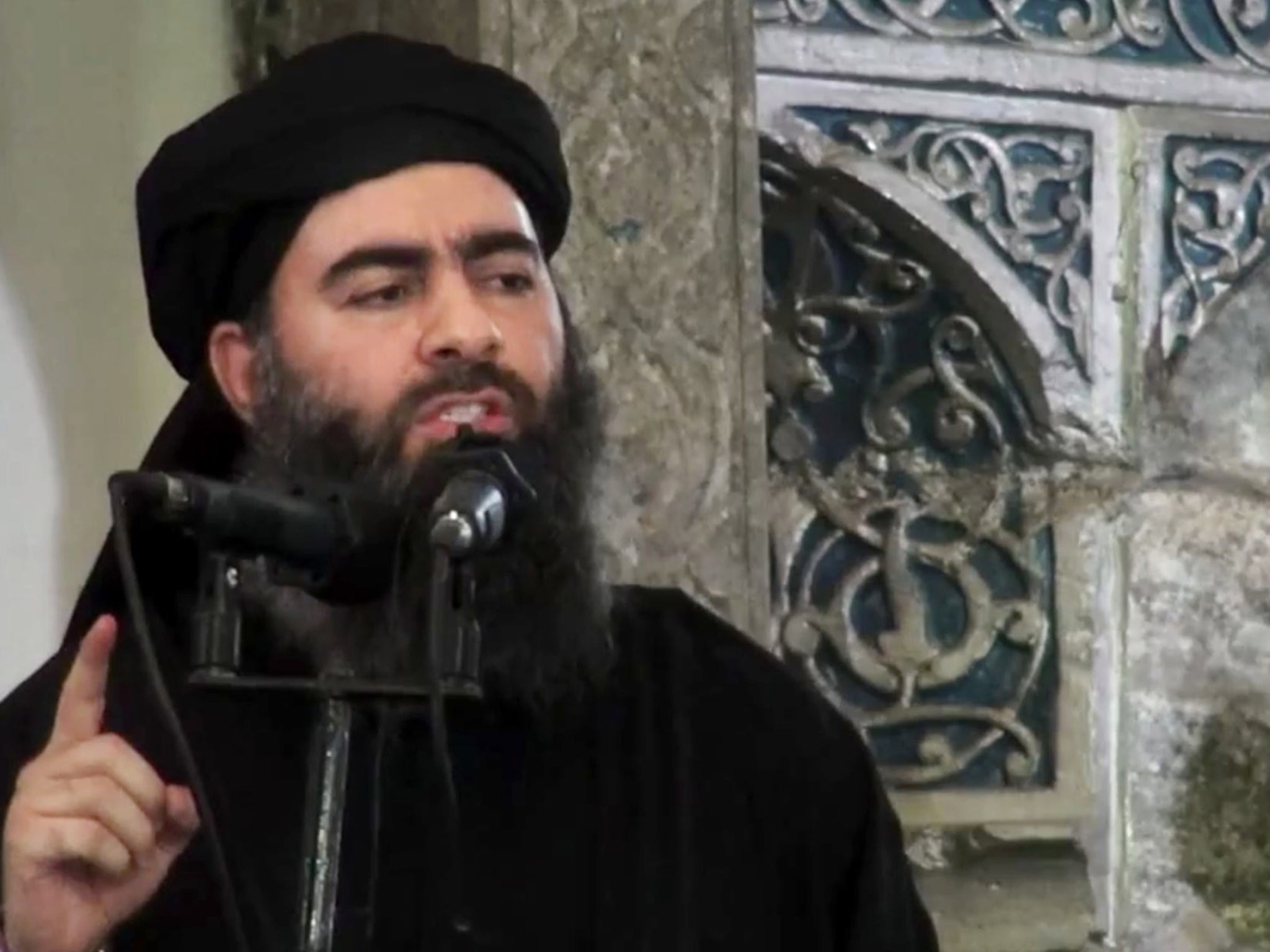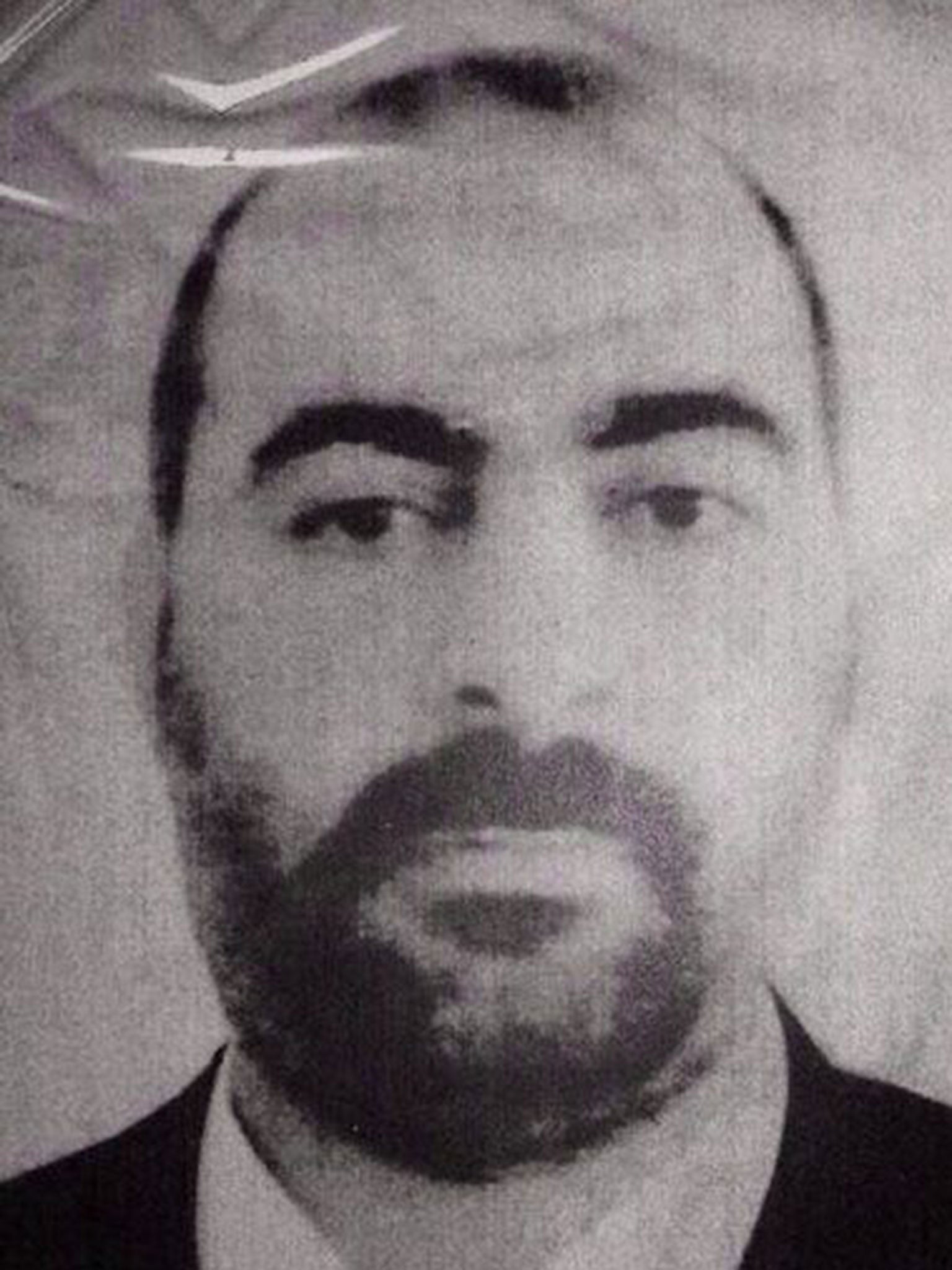Abu Bakr al-Baghdadi profile: The mysterious leader of Isis – and why he is called the 'invisible sheikh'
Sheik Abu Bakr Al-Baghdadi has been declared the "supreme leader" of Isis

Your support helps us to tell the story
From reproductive rights to climate change to Big Tech, The Independent is on the ground when the story is developing. Whether it's investigating the financials of Elon Musk's pro-Trump PAC or producing our latest documentary, 'The A Word', which shines a light on the American women fighting for reproductive rights, we know how important it is to parse out the facts from the messaging.
At such a critical moment in US history, we need reporters on the ground. Your donation allows us to keep sending journalists to speak to both sides of the story.
The Independent is trusted by Americans across the entire political spectrum. And unlike many other quality news outlets, we choose not to lock Americans out of our reporting and analysis with paywalls. We believe quality journalism should be available to everyone, paid for by those who can afford it.
Your support makes all the difference.The elusive Isis leader Abu Bakr al-Baghdadi is reported to have been injured as the target of US airstrikes in the Iraqi town Mosul.
But who is one of the world's most-wanted men, and what is known about him?
Of the attacks on Friday which caused the destruction of a 10-truck Isis convoy, the US Central Command said: "We cannot confirm if Isis leader Abu Bakr al-Baghdadi was among those present.
"This strike demonstrates the pressure we continue to place on the Isis terrorist network and the group's increasingly limited freedom to manoeuvre, communicate and command."
Before the bearded and black-robed al-Baghdadi appeared in a video delivering a sermon in July, there were only two confirmed photos of him and even his own fighters reportedly do not speak to him without the leader wearing a mask to hide himself, which gave him the nickname "the invisible sheikh".
His predecessor Abu Musab Al-Zarqawi was killed in a US bombing raid in 2006 after his secret location was tracked down and, in 2011, the US declared a £5.8 million bounty for anyone with information leading to al-Baghdadi's death or arrest.
The self-appointed caliph was born as Ibrahim Awad Ibrahim al-Badri to a family of religious preachers in 1971 and he grew up in the town of Samarra north of capital city Baghdad before being dubbed "the new bin Laden" by French newspaper Le Monde.
He moved to the city to complete his PhD at the Islamic University after gaining undergraduate and masters degrees and for more than 10 years until 2004 he lived in a basic small room attached to a mosque in the poor Baghdad outskirts of Tobchi.

However, despite leading prayers and keeping a low-profile, the owner of the mosque ordered him to leave after a dispute one year after American allies invaded Iraq to topple Saddam Hussein in 2003, and al-Baghdadi found himself no longer welcome in the neighbourhood.
The mosque owner had wanted al-Baghdadi to join the political Islamic Party, however he refused as political organisations are believed to be against the Salafist teachings that he subscribed to and, after the argument, he wasn't reported to have been seen in the town again.
US intelligence reports record that by 2005 he had moved to the town Qaim in the Sunni Iraqi province of Anbar. Then going by the pseudonym of Abu Duaa, he was accused of being connected to the torture and the “public execution” of local civilians.
But according to Hisham al-Hashimi, an Iraqi security strategist who has met al-Baghdadi in person, believed that it was a four-year prison stint in an American-run Camp Bucca in 2005 which influenced his extremist ideologies as he was living in close quarters with al-Qaeda militants.
Guards released him when the prison shut down in 2009 after having failed to carry out background checks to his threat to the public and al-Baghdadi subsequently became the leader of al-Qaeda as soon as a year later.
The 54th most powerful person according to Forbes magazine was then declared the leader of Isis in May 2010 following the death of his predecessor Abu Omar al-Baghdadi.
“He was a bad dude but he wasn’t the worst of the worst,” Colonel Kenneth King, then Camp Bucca’s commanding officer, told the Daily Beast.
Iraqi Prime Minister Nouri al-Maliki ordered the capture of anyone associated with al-Baghdadi after his fighters waged bloody war in Iraq and Syria, which has caused the death of tens of thousands and the displacement of more than 6.5 million people.
Join our commenting forum
Join thought-provoking conversations, follow other Independent readers and see their replies
13Comments